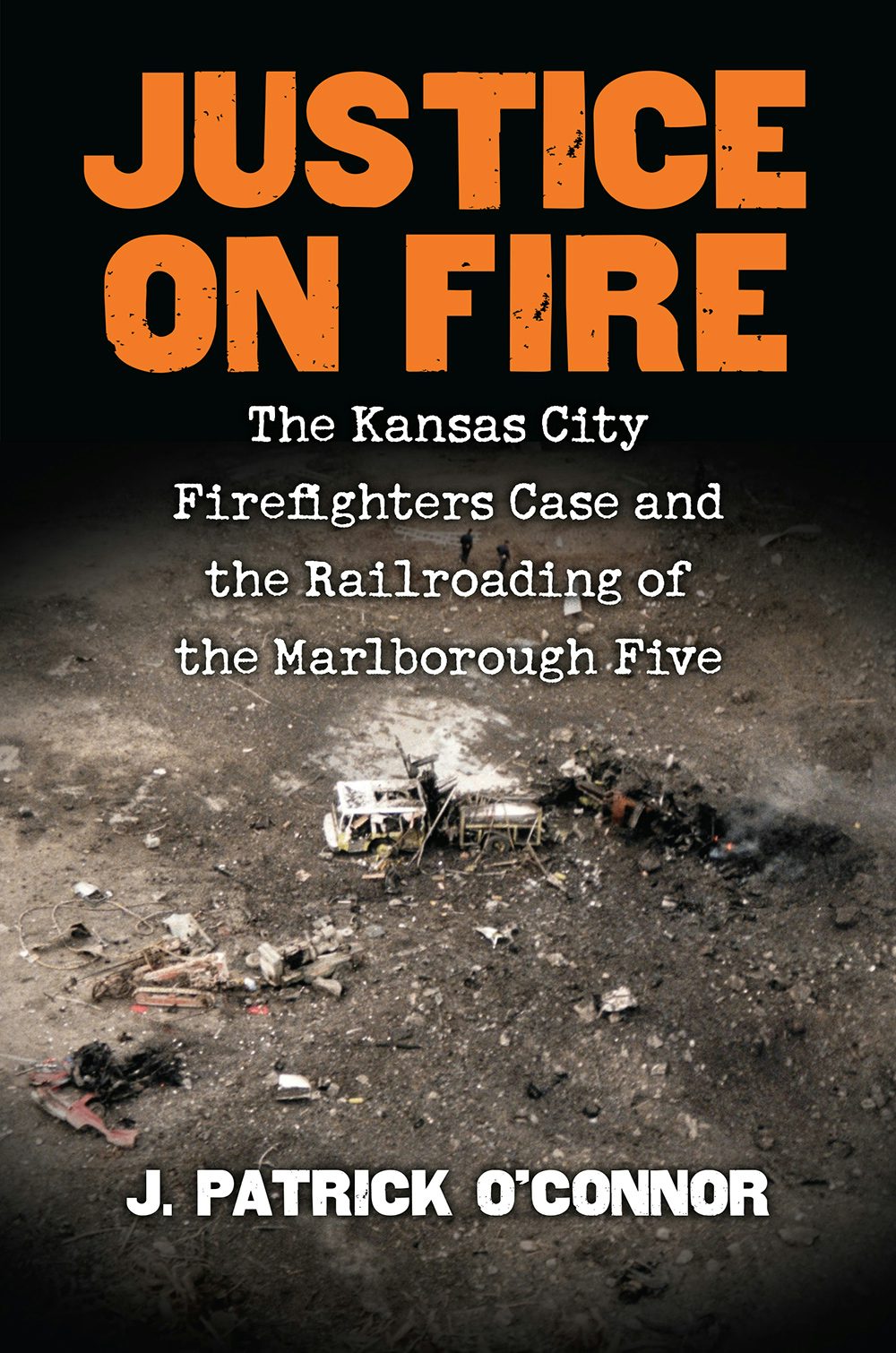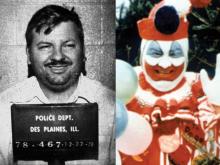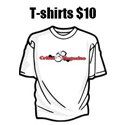
Ciro Terranova
The story of Ciro Terranova - believed by some to be the original "Boss of Bosses" in New York City.
by Allan May
As a history writer covering organized crime, one of my concerns is to find reliable sources for the stories I produce. One of the ways I try to do that is by using two or three references (books, magazines or newspaper articles) that confirm the same facts. Many times this is easier said than done. Information on the early lives of people I write about is especially hard to find and confirm.
Take the life of Ciro Terranova – the "Artichoke King." Information on Terranova’s early life is taken from The Rise of the Mafia in New York: From 1896 Through World War II, by Giuseppe Selvaggi. The book, written in Italian and later translated to English, was promoted as the "hitherto untold story" of the early days of the Mafia. Selvaggi was described as one of Italy’s leading political journalists. Much of the information in the book was gleaned from interviews with Zio Trestelle and other "noted criminals" deported to Italy from the United States. The revelations in this book must be taken in the same light as those of Nicola Gentile, whose Vita Di Capomafia is written along similar lines.
In Sicily, prior to 1890, Rosalia Terranova gave birth to a daughter and two sons, Vincenzo and Ciro. Rosalia’s husband was murdered shortly after Ciro’s birth. Rosalia then married a man named Morello, who had children from a previous marriage, including sons Antonio, Guiseppe, Nicholas, and Peter. The newly merged family left Sicily and moved to East Harlem in Manhattan. Three years later, Morello was murdered after leaving a poker game. Rosalia, who boasted of descent from Sicilian aristocracy, was forced to work in a sweatshop to support her family while her daughter helped raise the boys.
Selvaggi claims Ciro and Vincenzo left school to help supplement the meager income Rosalia brought in. Vincenzo soon was named "the first chief of the novice bandits." His reign didn’t last long as he was soon "shot down before his mother’s eyes."
Ciro was said to have taken over the small gang and achieved status as the "first uncrowned king of New York’s underworld." Selvaggi claims that Terranova "was the first gangster to attract the attention of bankers and politicians" and taught them the advantage of teaming with the underworld. Selvaggi credits Terranova, an early dope peddler, with giving cocaine the nickname "the white stuff."
In addition, Zio Trestelle, through Selvaggi, explains that Terranova was one of the first gangsters to get involved in the trade unions, deciding who the presidents and secretaries were. It was Terranova, he claims, who came up with the concept of providing employment to workers in return for a kickback to the union.
Terranova became friends with Ignazio Saietta, better known as "Lupo the Wolf," the head of the city’s most successful counterfeiting gang. Terranova "induced" his sister to fall in love with Saietta and the two were soon married. With Saietta’s muscle and influence, combined with the Terranova / Morello clan, the alliance became a formidable underworld power in New York. Terranova and Saietta worked out of an office located near a wholesale meat and produce market.
It was here that Terranova got the idea to monopolize the artichoke trade. Artichokes are said to be an Italian delicacy. Considered a vegetable, the artichoke is defined as the immature flower head of a tall thistle-like plant. "Three Stooges" fans may recall Curly Howard mistaking the strange looking vegetable for a hand grenade.
Terranova began his monopoly of the artichoke market by purchasing all the artichokes shipped to New York from California at $6 a crate. He created a produce company and resold the artichokes at 30 to 40 percent profit. Dealers were frightened away from finding alternative sources to buy the artichokes for fear of violence.
Meanwhile, Saietta became one of the most influential underworld leaders in the city and was named head of the Unione Siciliano. Terranova’s half-brother Giuseppe Morello joined the powerful combine and the gang moved its headquarters to a building the police would dub the "murder stable." It was alleged that the Terranova / Morello gang murdered 23 rival hoodlums there between 1900 and 1917.
When Saietta went to prison for counterfeiting in 1910, Terranova became one of the principal bosses in the city. Terranova flexed his muscle in 1916 when Joe DiMarco, a gambling-joint operator, challenged Ciro’s leadership. Ciro ordered a lieutenant, Leo Lauritano, to have DiMarco hit. Mike Fetto was dispatched to DiMarco’s club to kill him, but returned because he was unable to identify him. Lauritano then sent gunman John "Johnny Lefty" Esposito to perform the deed with Fetto in tow, perhaps to learn the ropes.
Unable to find DiMarco, Esposito didn’t want to leave empty handed so he shot and killed Charles Lombardi. By a strange twist of fate, the apprentice, Fetto, was able to find DiMarco and kill him.
Esposito was later apprehended and spilled his guts on Terranova, who was soon indicted in connection with the two murders. On the witness stand Esposito admitted that he was receiving $15 a week from Lauritano on retainer, "But after the DiMarco job they cut me down to $10," he explained. Perhaps the fact that Lombardi had been a friend of Lauritano’s has something to do with the sudden pay cut. Charges against Terranova were dismissed on the "ground that testimony against him was given by co-conspirators and accomplices and that outside corroboration necessary under New York law was missing."
Ironically, two weeks after the Lombardi murder, and before he was arrested, the enterprising Esposito was paid to murder Morello-Terranova gang members Charles Ubriaco and Nicholas Morello, Ciro’s half-brother. The two men had just met with rival gang members to iron out a peace plan.
By 1920, the Morello-Terranova-Saietta rule was being seriously challenged by Guiseppe Masseria. The challenge would not last long. Vincent Morello was murdered on East 116th Street and later powerful ally, Umberto Valenti, was ambushed by Masseria gunmen. After Valenti’s death, remaining members fell in line under the new leadership of "Joe the Boss". In fact another Terranova half brother, Peter "the Clutching Hand" Morello, would become one of Masseria’s most trusted lieutenants.
Under the new regime, Terranova ran upper Manhattan and the Bronx for Masseria during the 1920s. He bought an expensive home in Pelham Manor, N.Y., purchased an armored, bulletproof automobile, and dropped "into comparative obscurity," which he undoubtedly appreciated. His name resurfaced in 1929 when he was questioned in the murder of Gandolfo Civito, better known as Frankie Marlow, who had been Frank Yale’s right-hand man. Marlow had gained the reputation of a "nine-karat big shot." He owned nightclubs, race horses, and managed prizefighters. Rumored to be at odds with the Artichoke King, Marlow was last seen having dinner with Terranova the night he was shot to death.
Perhaps the most bizarre event in Terranova’s career came on Dec. 7, 1929. The board of directors of the Tepecano Democratic Club was giving a testimonial dinner in honor of Judge Albert H. Vitale. Held at the Roman Gardens in the Bronx, the banquet was attended by 70 guests. Terranova and six known gunmen from his gang were in attendance with various police officers, political figures, and friends. At 1:30 in the morning, as Vitale was making a speech, seven gunmen entered the dining room. The bandits robbed all of the guests of money and jewelry, even taking the gun of police Det. Arthur C. Johnson.
When the gunmen left, Johnson was asked by Vitale to keep the incident quiet while he looked into it. Within three hours Johnson was called to the headquarters of the Tepecano Democratic Club where he was given back his gun and all of the money and valuables that had been taken from the guests.
A novel explanation given for the robbery, of which the gunmen were said to be under the command of "Trigger Mike" Coppola, was that Terranova was trying to steal back a written murder contract. In Gang Rule in New York, the authors claim that during the departmental trial of Det. Johnson, Inspector Joseph Donovan claimed that there was a signed murder contract for $30,000 for the deaths of Frankie Marlow and Frank Yale. The murderers from Chicago had completed their work and wanted the money. The story continues:
"Then according to the only Police Department version of the Roman Gardens’ banquet ever made public, the man who had hired those two killings performed (Terranova) reneged upon his written bargain. Terranova, according to the police, paid the killers from Chicago an advance on account of $5,000. When they killed Yale and Marlow, and demanded the other $25,000, he declined to pay. The Chicago killers, the police said, then threatened to turn the written murder contract over to the police, though what good that would do them was never told."
The tale goes on that Terranova wanted to see the contract to refresh his memory and upon seeing his signature would pay the balance due. An "agent" of the Chicago hit team was sent to meet Terranova at the dinner with the alleged contract in hand.
Terranova then had the holdup staged to steal back the contract.
Terranova was arrested and charged with the holdup. After the "storm of public concern" blew over, he was released. From his palatial Pelham Manor home he gave an interview in which he claimed he was made the "goat" of political infighting caused from a split at Tammany Hall. During the interview he blamed New York Mayor Jimmy Walker in part for the fiasco. When Walker was made aware of the accusations he replied, "Terranova’s not a goat; he’s a jackass."
Judge Vitale was not as fortunate as Terranova. Public indignation raised by the incident resulted in the judge being removed from the bench in March 1930.
Meanwhile the underworld structure in New York City was about to change for good with the onset of the Castellammarese War.
In The Valachi Papers, the famed informant discussed his dislike of Terranova after Valachi fell in with the wrong crowd around 116th Street. Through friends Valachi tried to patch things up with Terranova, even befriending his driver Frank Livorsi. Shortly after this, Valachi was approached by gang boss Gaetano Gagliano to join his side in the Castellammarese struggle. His first assignment was to kill Livorsi, which Valachi refused to do. Instead, Valachi teamed up with the infamous "Buster from Chicago" and was involved in the murder of Joseph "Joe Baker" Catania, Terranova’s nephew. At the funeral it was reported that Terranova placed his hand on the coffin and swore revenge.
Valachi also claims to have been in on the murder of Terranova’s half-brother Peter "the Clutching Hand" Morello, who was killed along with another man in his office in August 1930. Valachi’s actual participation in this killing is questioned because Luciano later claimed that Albert Anastasia and Frank Scalise committed the murders.
On April 15, 1931 an event took place that would forever brand Terranova in a negative light. This was the day Lucky Luciano set up Joe Masseria to be murdered. The assassination squad, according to Luciano, consisted of Joe Adonis, Albert Anastasia, Vito Genovese, and Bugsy Siegel. Terranova drove the four men to the Nuova Villa Tammaro Restaurant in Coney Island. The four killers went inside and shot "Joe the Boss" to death while Lucky was conveniently in the men’s room relieving himself. Luciano revealed in his book The Last Testament of Lucky Luciano, that when the gunmen climbed back into the automobile Terranova was "so shaken that he was unable to put the car in gear." Siegel reportedly shoved him out of the way and took the wheel himself. When word of this got around Terranova supposedly lost face in the underworld.
In the early 1930s Dutch Schultz took over the Harlem number’s rackets. Terranova became a partner and was cut in for 25 percent according to Schultz attorney Dixie Davis.
The year 1935 would be a turning point in the fortunes of Terranova. In late October, Schultz and three associates were murdered in Newark, N.J. Terranova’s aspirations of taking a larger role in the number’s rackets were dashed when Luciano replaced him with "Trigger Mike" Coppola. His power nearly stripped, Terranova’s one remaining source of income, the artichoke business, would come under attack next, not from gangsters, but from the mayor himself.
On Dec. 21, 1935, "at the crack of dawn" New York Mayor Fiorello La Guardia appeared at the Bronx Terminal Market. With a fanfare of trumpets, "that went a little flat" in the chilly morning air, he announced a ban on the sale, display, and possession of artichokes. The mayor’s proclamation was read and printed in the newspaper the following day. Six men had already been indicted on violation of the anti-trust laws the previous February, including Joseph Castaldo, a relative of Terranova and his successor in the artichoke business.
Although Terranova was not named in the indictment, La Guardia directed the police to keep Ciro out of the city. During 1936, anytime Terranova showed his face south of the line that separates New York City from Westchester, he was arrested as a vagrant.
Things got so bad for Terranova that in 1937 he lost his luxurious Pelham Manor home after he entered receivership. At that time he told the court he was broke and living on borrowed money.
Terranova suffered a paralyzing stroke on February 18, 1938 and was admitted to the Columbus Hospital. The newspapers became aware for the first time that Terranova was living back in the city. Police Commissioner Lewis J. Valentine was questioned as to whether the exile order had been rescinded. Valentine replied, "The members of the detective division have been cognizant of the movements of Ciro Terranova. We consider him just another notorious racketeer who, because of close police surveillance, has been prohibited from operating and is now criminally and financially impotent."
Just after midnight on Sunday, Feb. 20, Terranova died with his wife and son at his side. The once mighty gangster passed away at the relatively young age of 49, paralyzed and penniless.
Allan May's e-mail address is: AllanMay@worldnet.att.net








